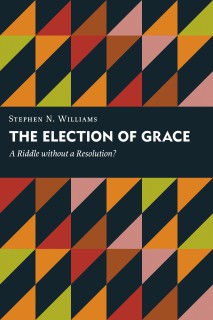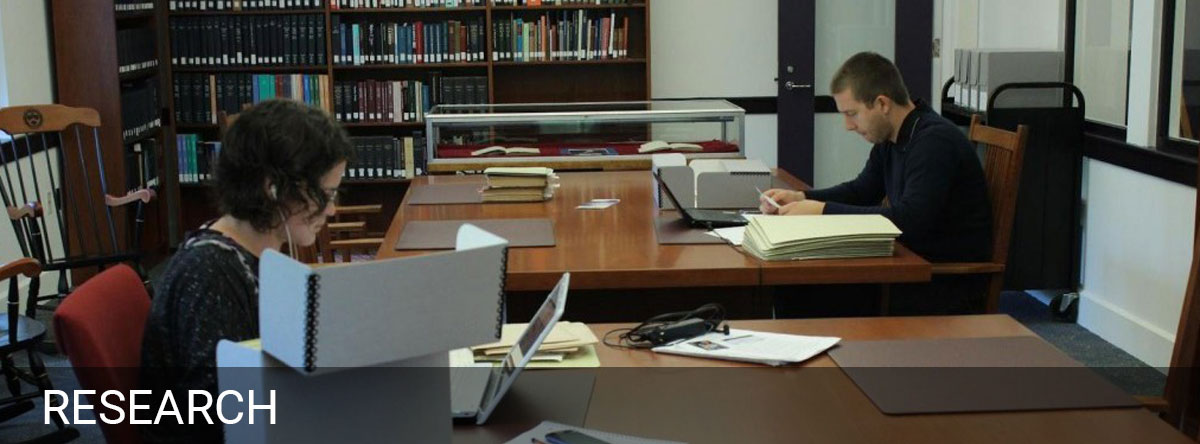 Williams, Stephen N. The Election of Grace: A Riddle without a Resolution? (Grand Rapids, MI: Eerdmans, 2015) viii + 221 pp. $26.00 (paperback)
Williams, Stephen N. The Election of Grace: A Riddle without a Resolution? (Grand Rapids, MI: Eerdmans, 2015) viii + 221 pp. $26.00 (paperback)
Reviewed by Jordan Bradford (September 08, 2016)
Stephen Williams’ The Election of Grace: A Riddle without a Resolution is the first published volume in the Kantzer Lectures in Revealed Theology series sponsored by the Carl F. H. Henry Center for Theological Understanding at Trinity Evangelical Divinity School. Williams’ first two chapters consider a biblical theology of the Old and New Testaments respectively on the doctrine of election and eventually lands on an Augustinian understanding of election and predestination. This is followed by two chapters on dogmatic theology that form the main substance of the book. The first of these, “Dogmatic Limits,” attempts a defense of Anglican Charles Simeon’s view that the theological propositions pertaining to election (and predestination) that stand in conceptual tension with one another should not be given dogmatic systematization regarding their interrelationships. The second, “Dogmatic Difficulties,” aims to show that this Augustinian doctrine faces no significant challenge from considerations often raised against doctrines of election. Finally, the book ends with a critical appendix on Karl Barth’s doctrine of election.Williams begins by quickly outlining the Old Testament narrative with an eye to Israel’s election before turning to the burning question: why is biblical election exclusive? According to Williams, it is because the election of a particular people is christologically and incarnationally necessary for reconciliation. In other words, there is “no possibility of his [Christ’s] coming into it [the world] without the prepared and particular connection of nation and of history” (26). Further, election dynamically (and sometimes interruptedly) bestows the privilege not only to service, but, perhaps scandalously, the privilege of communion with and knowledge of God. The scandal only increases when it is found in Revelation that election is tied to a group that will reign in some undetermined sense in the eschaton, but this smaller riddle drops out of the wider discussion in favor of explicating the more controversial riddle of predestination in the New Testament.
Williams’ exegesis of relevant New Testament texts is understandably brief in order to facilitate the movement towards dogmatics. He quickly settles on an Augustinian view of predestination, defined later in the book as “a positive predestination to life which is not a universal predestination, not conditional on foreseen faith, and not the predestination of a collective or group of unspecified membership” (169). With the acceptance of an Augustinian doctrine of predestination there naturally appears an important question: must we also accept double predestination, that there is an antecedent decree of reprobation for those not elected and predestined to life? The rest of the chapter is devoted to arguing that scripture contains no explicit grounds for such a decree.
If we follow Williams and accept that there are no explicit scriptural grounds for an antecedent decree of reprobation, might we not still be forced to accept that it exists as a logical entailment of Augustinian predestination? The chapter “Dogmatic Limits” argues for a negative answer to this question. Williams wants to maintain both of these theological propositions: “[1] Those who receive Jesus Christ are drawn in time by the Father who purposed from eternity to do so. . . [2] Those who do not receive Jesus cannot blame the Father for not having drawn them in time nor claim that they have been antecedently excluded from eternity” (118). How are we to systematize these two theological statements? Williams argues that such a question is actually mistaken. Developing Charles Simeon’s mediating position in the 18th and 19th century Arminian/Calvinist disputes, Williams rejects the systematization of these statements, instead opting for the Wittgensteinian view that “Our job is to know how truth x applies to our lives and how truth y applies to our lives, not the relationship between x and y” (115). Existential reconciliation therefore takes priority over conceptual reconciliation. Convergent reason to accept this thesis is given by an appeal to Immanuel Kant’s general metaphysical skepticism. Although the inference from Augustinianism to an antecedent decree of reprobation based on God’s immutable will seems prima facie to be an obvious and elementary deduction, it “generates too many speculative metaphysical questions, both about what happens in time and about its relation to what happens in eternity” (133). “Augustinian Mysterianism” therefore appears to be an apt title for the doctrine of election and predestination espoused throughout the book.
The last chapter considers well-known difficulties regarding the doctrine of election. How does it square with God’s mercy and justice? Williams begins by diffusing the standard answer – that justice is all that sinners deserve and mercy is not owed to anyone – by speculating that the nature of God as such is to be merciful and that therefore God could not, without ceasing to be God, have withheld mercy from sinners. In its place he argues that given his unsystematized doctrine of election, the contrast between mercy and justice should be revised. God’s predestination is obviously a mercy, but the fact that those who are reprobate are not caused to be so by an antecedent decree and were genuinely summoned to receive Christ shows that they too were also given mercy as opposed to solely justice.
Next he tackles the question of assurance, giving a nod towards Karl Barth’s doctrine of election. How, he asks, can we be assured of our own election if election is not universal, that is, if Christ’s work does not signify my (individual) election? Williams emphasizes that any non-universalist interpretation of election is going to struggle for a satisfactory answer and ties assurance to sanctification. To avoid the Barthian doctrine of universal election, Williams states that “The genuineness of summons and opportunity for those who reject it implies a provision of God in the atonement of Jesus Christ wider than its provision for the elect” (160). Just how wide this provision is, what it consists of, and how it can cover the non-elect is left as another riddle.
The question of assurance flows naturally into the question of perseverance. The language of promise and warning becomes complicated when applied to the collective group of Israel in the Old Testament or the recipients of epistles in the New Testament, as they can be applied to a group composed of those both eternally secured and those who are not, and to different individuals at different times. Thus the language of predestination cannot be “semantically sealed off against the possibility of the same variation” (165). This has made dogmatic inquiry more complicated and confused than it should. One is elect – and will presumably persevere on Williams’ account – if they express repentance and bear fruit.
Having already made reference Barth’s work in passing, Williams ends the book with an appendix dedicated to a critical discussion of Barth’s unique doctrine of election. As is well known, Barth was distinctive in that he held election to be universal while denying that this necessarily led to universalism. Behind the reasoning that led to this somewhat unusual conclusion was Barth’s doctrine of God and distaste for natural theology. A possible psychological explanation for Barth’s attack on natural theology and acceptance of universal election, says Williams, is an existential fear: “Natural theology will not yield a gracious God [who has elected me], and nothing must cloud our discovery of him in Jesus Christ” (207). For Barth, election must be universal, for if it is not, then God cannot be known as the gracious God, because Jesus’ work could not be known with complete assurance to be God’s pledge of grace for me. Throughout the appendix Williams tackles this suggestion on biblical grounds: election “is always discriminate in Scripture” (187). He even goes as far as to say that Barth’s view of scripture is “mired in illogicality and injustice” (199).
Williams’ Augustinian Mysterianism may be perceived by readers – especially those within evangelicalism, who make up no small part of the intended audience – as violating the perspicuity of scripture and promoting a tension within it. Those Arminians and Calvinists who emphasize biblical exegesis will almost certainly not be persuaded to accept Williams’ account, as his exegesis is fast-paced and left largely undefended. His criticism of Barth on biblical grounds will satisfy some and be ignored by others. To truly establish his overall case would require many weighty tomes that cover everything from biblical exegesis to philosophical theology. Nevertheless, those like myself who are skeptical of forming a theological system and believe him to be working in the right direction will find Williams’ work a necessary, even refreshing, account of Christian dogmatic theology. The healthy skepticism in dogmatic matters defended in The Election of Grace show that we may indeed have to live with some riddles of election left unresolved, existentially embracing scripture’s truths without conceptually reconciling them.
The views expressed here are strictly those of the author; they do not necessarily represent the views of the Center for Barth Studies or Princeton Theological Seminary.


